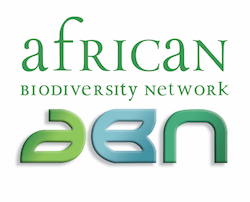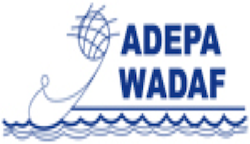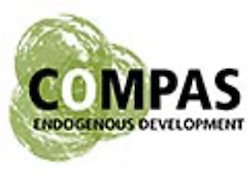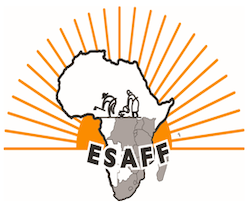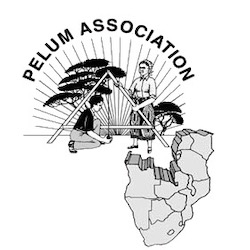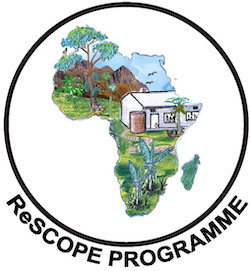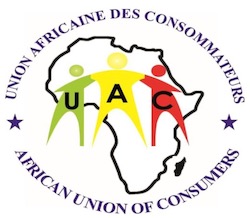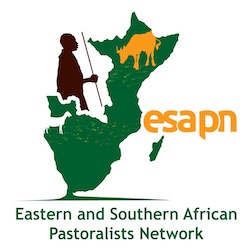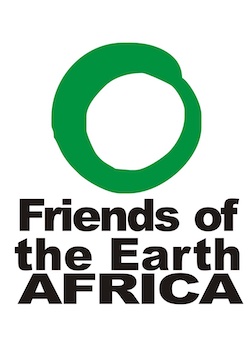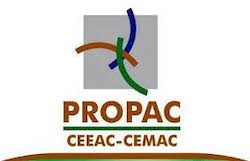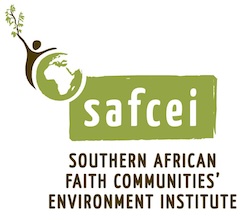
Meet our Core members

African Biodiversity Network
The African Biodiversity Network (ABN) is a regional network of individuals and organisations seeking African solutions to the ecological and socio-economic challenges that face the continent. The ABN was first conceived in 1996 in response to growing concern in the region over threats to Biodiversity in Africa and the need to develop strong African positions and legal instruments at the national, regional and international level.
ABN accompanies Africans in voicing their views on issues such as food and seed sovereignty, genetic engineering, agrofuels, biodiversity protection, extractive industries and the rights of small-holder farmers.We focus on indigenous knowledge, ecological agriculture and biodiversity related rights, policy and legislation. We pioneer culturally-centred approaches to social and ecological problems in Africa through sharing experiences, co-developing methodologies and creating a united African voice on the continent on these issues.

ADEPA/WADAF
The West African Association for the Development of Artisanal Fisheries (ADEPA) is an NGO created in 1992 by four (4) NGOs: INADES-Formation (Cote d’Ivoire), CEASM (France), CUA (Ghana) and CREDETIP (Senegal)). Its headquarters, previously established in Abidjan, was transferred to Dakar (Senegal) in 2003.ADEPA was born in a context marked by a virtual absence of professional artisanal fishing organizations and even small-scale fisheries support NGOs on a regional scale. It consists of 13 professional artisanal fisheries organizations and covers 16 countries in West Africa.

COMPAS
Comparing and Supporting Endogenous Development (COMPAS Africa) is a capacity building programme to develop and mainstream endogenous development methodologies. Field programmes serve to develop evidence of the outcomes and impact. Mainstreaming takes place by including endogenous development in programmes funded through various donor agencies, establishing policy dialogues and developing university curricula.The main objectives of COMPAS are: To systematically develop, test and improve methodologies for endogenous development based on rural peoples’ worldviews. To mainstream the endogenous development approach into policies and development programmes. To enhance the capacity of NGOs in endogenous development.

ESAFF
Eastern and Southern Africa Small Scale Farmers Forum (ESAFF) is a network of small holder farmers that advocate for policy, practice and attitude change that reflects the needs, aspirations, and development of small-scale farmers in east and southern Africa. It was established in 2002 after the World Summit of Sustainable Development (WSSD) held in Johannesburg in South Africa. ESAFF is registered in Tanzania under Non-Governmental Organisations Act 2002 of the United Republic of Tanzania.To-date ESAFF operates in 13 countries namely in the eastern and southern Africa region. These countries are; Tanzania through MVIWATA; Kenya (Kenya Small Scale Farmers Forum – KESSFF), Uganda (ESAFF Uganda), Zambia (ESAFF Zambia); Zimbabwe (Zimbabwe Small Organic Smallholder Famers Forum – ZIMSOFF), Lesotho (Lesotho Small Scale Farmers Forum); South Africa (ESAFF South Africa); Malawi (National Small Scale Farmers Movement -NASFAM); Rwanda (APPPE); Burundi (ESAFF Burundi); Madagascar (Confédération des Agriculteurs Malagas – CPM) ; Seychelles (Seychelles Farmers Association – SeyFA) and Mozambique (ROSA).

FECCIWA
The Fellowship of Christian Councils and Churches in West Africa (FECCIWA) is a regional community of national Christian councils and churches from thirteen countries. FECCIWA identifies and addresses the root causes of on-going violent conflicts in West Africa and contributes to peace and security in the sub-region. FECCIWA supports church leaders in their efforts to develop strategies to mitigate hunger, poverty and injustice in West Africa.FECCIWA cooperates with national decision-makers to ensure that people can improve their lives and exercise an influence over decisions that affect them. FECCIWA promotes policies on good governance and human rights. FECCIWA is providing a morally respected prophetic voice that is helping to foster humanitarian attitudes in West Africa.

Groundswell West Africa (GWA)
Groundswell International catalyzes the transition from unsustainable conventional agriculture to ecologically-sound farming and food systems. As a community of practice with decades of shared learning, Groundswell has developed a suite of effective strategies to address the root causes of food insecurity, social marginalization, economic vulnerability, and environmental degradation. While each of our partner’s programming responds to its unique people and context, Groundswell programs everywhere:
- Work with farmer leaders to test and adopt agroecological methods and spread them to more people through farmer-to-farmer training, allowing these farmers to produce more healthy food and restore hundreds of thousands of acres of degraded land.
- Empower women farmers to participate in savings and credit groups, improve ecological production, gain access to productive assets, and diversify their livelihoods, which in turn improves their families’ food security, incomes and resilience.
- Strengthen local markets and increase farmers’ incomes through savings and credit groups and community-based agricultural enterprises that add value to locally grown crops.
- Nourish vulnerable families by explicitly integrating gender equity and nutrition into agricultural programs. Our holistic approach links agroecological farming to family nutrition, localized markets and improved food systems.
- Support citizens to engage with local decision-makers on enabling local policies, and produce influential case studies, policy briefs, and reports to facilitate sharing across our networks and with other stakeholders to expedite the necessary transition to agroecology.
All of these strategies are based on a practical, “learning by doing” approach that builds participants’ confidence while meeting their basic needs. When people see the changes they are bringing about, it empowers them, and soon they become the lead actors in improving their own lives. Groundswell and its partners share a deep commitment to ‘people-centred’ development that affirms the agency, innate capacity and dignity of all people to improve their own lives, live sustainably with nature, and create healthy communities and societies.
The Groundswell West Africa network includes four organizations and their in-country networks of grassroots community groups. Agrecol Enrique works in Senegal, Association Nourrir Sans Détruire (ANSD) in Burkina Faso, Center for Indigenous Knowledge and Organizational Development (CIKOD) in Ghana, and Sahel Eco in Mali. Each organization has its own national portfolio and co-develops and co-implements regional initiatives. Today, Groundswell West Africa directly engages over 25,000 smallholders to improve their farms agroecologically, and it is a member of the Alliance for Food Sovereignty in Africa (AFSA)

Indigenous Peoples of Africa Co-ordinating Committee (IPACC)
The Indigenous Peoples of Africa Co-ordinating Committee (IPACC) is a network of 135 indigenous peoples’ organisations in 20 African countries. It is a membership organisation. Members elect an Executive Committee representing six geographic and cultural regions in Africa including a special regional representative of indigenous women.Any legitimate organisation run by African indigenous peoples for the promotion of indigenous peoples’ rights and welfare is welcome to apply for membership. Other associations working in development, human or indigenous rights may apply for associate (non-voting) membership.

La Via Campesina Africa
La Via Campesina (LVC) is the international movement which brings together millions of peasants, small and medium-size farmers, landless people, women farmers, indigenous people, migrants and agricultural workers from around the world. It defends small-scale sustainable agriculture as a way to promote social justice and dignity. It strongly opposes corporate driven agriculture and transnational companies that are destroying people and nature.La Via Campesina comprises about 164 local and national organizations in 73 countries from Africa, Asia, Europe and the Americas. Altogether, it represents about 200 million farmers. It is an autonomous, pluralist and multicultural movement, independent from any political, economic or other type of affiliation.
LVC Africa has member organizations representing 15 African countries.

Participatory Ecological Land Use Management (PELUM) Association
Participatory Ecological Land Use Management (PELUM) Association is a network of Civil Society Organizations / NGOs working with Small-scale farmers in East, central and Southern Africa. The Association membership has grown from 25 pioneer members (in 1995) to over 250 members in 2014.
PELUM Association operates in 10 countries of East, Central and Southern Africa: Eastern Africa Kenya – Uganda, Tanzania and Rwanda; Central Africa – Zambia, Zimbabwe and Malawi; Southern Africa – South Africa, Lesotho and Botswana.
PELUM Association promotes Participatory Ecological Land Use, Management practices in the East, Central and Southern region; builds the capacity of members and partners to respond appropriately to community needs as they work to empower the communities they work with; increases the visibility of the small-scale farmers; promotes sharing of information of development experiences, innovations, and best practices; strengthens linkages and collaboration through action learning among partners and members; lobbies (directly) for change and formulation of policies in favor of small-scale farmers; promotes Seed Security and hence food security among small-scale farmers; promotes the use of indigenous food programme; promotes the mainstreaming of the Gender and HIV / AIDS in Agriculture Development Programme and offers consultancy.

Regional Schools and Colleges Permaculture Programme (ReSCOPE)
Regional Schools and Colleges Permaculture Programme (ReSCOPE) is a network that was founded in Lusaka in 2006 following the pioneering work of SCOPE Zimbabwe since 1994.
The network was established to build capacity of local organizations to facilitate sustainable land use that would involve all the key stakeholders.
It also facilitates sharing of experiences for sustainable and productive learning centres that are rich in agroecological resources and supports interested partner organizations to use the Integrated Land Use Design (ILUD) process as a tool for school and college communities to develop multi-functional landscapes that help them move towards food sovereignty and improved nutrition. ReSCOPE Programme and its partners also promotes establishment of food forests on previously dusty or bare land.
It is a growing network of country chapters which have been established in Zimbabwe, Malawi, Kenya, Uganda and Zambia to amplify advocacy issues facing young people and the environment.

African Union of Consumers
Union Africaine des Consommateurs (UAC) or African Union of Consumers (AUC) in English, was established at the Pan African Consumer Forum held from 21 to 23 July 2015 in N’Djamena, Chad. AUC is a historic turning point in consumer advocacy in Africa.
AUC focuses on African consumers, to make them aware of their rights and responsibilities, and determined to loudly voice the voice of citizens-taxpayers-consumers.
AUC is completely independent of manufacturers, traders, trade unions, press or financial groups, political parties and, more generally, any interest or group other than that of consumers and the public interest.

African Centre for Biodiversity
The African Centre for Biodiversity (ACB) was established in 2004. The centre carries out research, analysis, advocacy and information sharing with key organizations in our network to foster and promote informed engagement with policies and decision making that control production, distribution and access to food and resources. The African Centre for Biosafety officially changed its name to the African Centre for Biodiversity. This name change was decided upon by mutual consultation within the ACB to reflect the expanded scope of our work over the past few years.The ACB has a respected record of evidence based work and plays a vital role in the agro-ecological movement by striving towards food sovereignty in Africa, built upon the values of equal access to and use of resources. The ACB’s work is pioneering and adapts to the changing nature of the debate and challenges globally, and on the African continent. It is a strong advocate on critical issues of poverty, women and environment as they relate to social justice and food sovereignty.
The ACB works across East and Southern Africa in a number of countries include Tanzania, Zambia, Zimbabwe, Malawi, Mozambique, Swaziland and South Africa.

COASP
West African Committee of Peasant Seeds (COASP) is based in Senegal under the ASPSP (Senegalese Association of Peasants’ Seeds Producers) which ensures COASP activities and coordination. COASP was formed in 2011, during the 3rd edition of the West African Peasants’ Seeds Fair. Following west african countries that attended the seed exibition are those who have their organisations as member of the COASP: Benin, Burkina Faso, Gambie, Bissau Guinea, Mali, Niger, Togo and Senegal. Each country appointed its country coordinator and an assistant.The establishment of COASP was the result of a long process of consultation between farmers’ organizations (FOs) and the willingness of the country representatives to the Seed Fair which is organized in Djimini (Velingara, Senegal) every two (02) years. The ASPSP, initiator of the fair Djimini coordinates member organizations. Members of this network are active on agroecology and produce their own seeds. They organize trainings (seed management, seed law and agroecology), harvest festivals, exchanges between farmers, national and sub-regional fairs. The network also participates in international meetings through its collaboration with the Peasant Seeds Network of France, the European Seed Network.

COPAGEN
Coalition for the Protection of Africa’s Genetic Heritage (COPAGEN) comprises a membership of farmers’ organizations, trade unions, women organizations, youth groups, academics, NGOs in ten countries; Benin, Burkina Faso, the Gambia, Guinea Bissau, Guinea Conakry, Mali, Niger, Senegal, Togo, and the Ivory Coast. COPAGEN works on the following issues: GMOs, farmers’ rights, land issues, agrofuels, agricultural policies and food sovereignty.The seven-member regional coordination group is the body responsible for monitoring the implementation of the decisions of the General Assembly (GA). It therefore acts as a board of directors. The regional coordination group meets at least once a year between two GAs, convened by the Regional Focal Point.

ESAPN
The Eastern and Southern African Pastoralists Network ESAPN is a consortium of pastoralist organizations, groups and institutions in Eastern and Southern Africa. The network is guided by the following vision and mission:
Vision: An Eastern and Southern Africa where pastoralists, their livelihoods, communities and cultures are recognized and respected for their contribution to sustainable food systems, natural resource management, and socio-economic development
Mission: To empower pastoralists in Eastern and Southern Africa to sustainably improve productivity and livelihoods, while making their voices heard through effective communication, advocacy and legitimate demand for services and resources from policymakers
Objectives: ESAPN as a regional representative of pastoralist organizations in their entire diversity has the following objectives:
- Serving as a forum for exchange of experience and as a source of information on pastoralism development, research and statistics;
- Coordinating actions for the promotion of pastoralism development; and;
- Collaborating with national, regional and global institutions that pursue aims of importance to pastoralism.

Friends of the Earth Africa
Friends of the Earth Africa brings together groups throughout Africa to participate in international programs and develop initiatives to strengthen campaigning in the region. FoEA is a Regional chapter of Friends of the Earth International (FoEI). FoEI is the world environmental justice federation with 76 member groups, with 14 member groups in Africa: Nigeria, Mali, Tunisia, Ghana, Togo, Uganda, Mozambique, Cameroon, Tanzania, Sierra Leone, Liberia, South Africa, Swaziland and Mauritius.FoEI member groups in Africa are particularly active in community-based forest management; extractive industries and African peoples’ need for access to clean renewable energy; food sovereignty and the struggle against GMOs; and the dangers of agrofuels expansion in the region.

Health of Mother Earth Foundation
HOMEF is an environmental/ecological think tank and advocacy organisation. It is rooted in solidarity and in the building and protection of human and collective dignity.
HOMEF believes that neoliberal agendas driven by globalization of exploitation of the weak, despoliation of ecosystems and lack of respect for Mother Earth thrive mostly because of the ascendancy of enforced creed of might is right. This ethic permits the powerful to pollute, grab resources and degrade/destroy the rest simply because they can do so.
Three key areas of focus are fossil politics, hunger politics and creating spaces for knowledge generation and sharing.

INADES Formation
Inades-Formation is an experienced support for farmers’ initiatives, dating back nearly fifty years, from 1962 to date. INADES-Formation operates in 10 African countries namely; Burkina Faso, Burundi, Cameroon, Ivory Cost, D.R Congo, Kenya, Rwanda, Tanzania, Chad, Togo.Stimulating local development processes and support for inclusive local governance, support to communities and sustainable initiatives for the management of natural resources, support for financial solidarity initiatives and promotion of family farming are main areas of focus for INADES-Formation.

Young Volunteers for the Environment (YVE)
Young Volunteers for the Environment (YVE) – or Jeunes Volontaires pour l’Environnement (JVE) in French – is a non-governmental organisation, created in 2001, and based in Lomé, Togo. The organisation has some 40 local branches in Togo. Through affiliates in a total of 21 countries all over Africa, JVE is today known as the biggest youth-oriented environmental movement in Africa.From the starting point in the small Togolese village of Tsiko, working with information and education concerning the degrading local environment, the organisation has expanded its geographical and thematic areas of work, but still in the domain of sustainable development.
Its activities are mainly focused around access to basic energy, water and sanitation services; cultural biodiversity and eco-conscience; climate change; and natural resource management.

North African Food Sovereignty Network
The North African Food Sovereignty Network (NAFSN) is a unifying structure that includes peasant-based organisations and grassroots associations, farmers/agricultural workers/fishers unions and social movements. The Network strives to achieve food sovereignty, climate and environmental justice in North Africa.

Regional Platform of Farmers' Organisations in Central Africa
PROPAC aims to harmonize the strategies and actions of the Central African National Farmers’ Organizations in the formulation, implementation and evaluation of agricultural development policies in order to take their proposals into account in decisions aimed at a sustainable improvement of living conditions of the rural population is based on a strategy which is structured in the organization of peasant organizations, capacity building of small producers and lobbying and advocacy for family farming and the rural world.
Established in 2005 with headquarters in Yaoundé, Cameroon, it brings together the national platforms of small agricultural producers from the ten ECCAS / CEMAC member countries.
PROPAC has members representing 10 countries.

The Rural Women’s Assembly
The Rural Women’s Assembly (RWA) is a self-organised network or alliance of national rural women’s movements, assemblies, grassroots organisations and chapters of mixed peasant unions, federations and movements across eight countries in the SADC region.Over a period of four years, RWA gathered together poor, rural women into regional Rural Women’s Assemblies; into international platforms coinciding with major multi-lateral events, such as COP 17 and Rio +20; and into regional lobbying processes that have run parallel to SADC meetings, as well. National chapters of the RWA have also organised their own lobbying events and activities to coincide with important national meetings, summits and on international days, such as International Rural Women’s Day and International Women’s Day.

Southern African Faith Communities’ Environment Institute
The Southern African Faith Communities’ Environment Institute (SAFCEI) is a multi-faith organisation committed to supporting faith leaders and their communities in Southern Africa to increase awareness, understanding and action on eco-justice, sustainable living and climate change.
It was launched in 2005 after a multi-faith environment conference which called for the establishment of a faith-based environment initiative. SAFCEI has a broad spectrum of membership, including African Traditional Healers, Baha’i, Buddhist, Hindu, Muslim, Jewish, Quaker, and a wide range of Christian denominations.
SAFCEI emphasises the spiritual and moral imperative to care for the Earth and the community of all life. They call for ethical leadership from all in power and speak out on issues of eco-justice, encouraging citizen action.

World Neighbors
World Neighbors is an international development organization striving to eliminate hunger, poverty and disease in the poorest, most isolated rural villages in Asia, Africa and Latin America.World Neighbors invests in people and their communities by training and inspiring them to create their own life-changing solutions through programs in agriculture, literacy, water, health and environmental protection.
World Neighbors listens to people, without predetermined ideas, to identify and address their needs, resulting in greater community involvement and long-lasting impact. World Neighbors provides knowledge and training so people gain skills and confidence, then local leaders and organizations emerge and work together to carry on the work. World Neighbors works in five African countries – Mali, Kenya, Burkina Faso, Tanzania and Uganda.

Stay Updated
Keep up to date with all our latest news and events by entering your details below and signing up to our newsletter.
Contact us
For all general enquiries, please contact us
Follow us
Visitors
[powr-hit-counter id=08deb970_1539263115]



